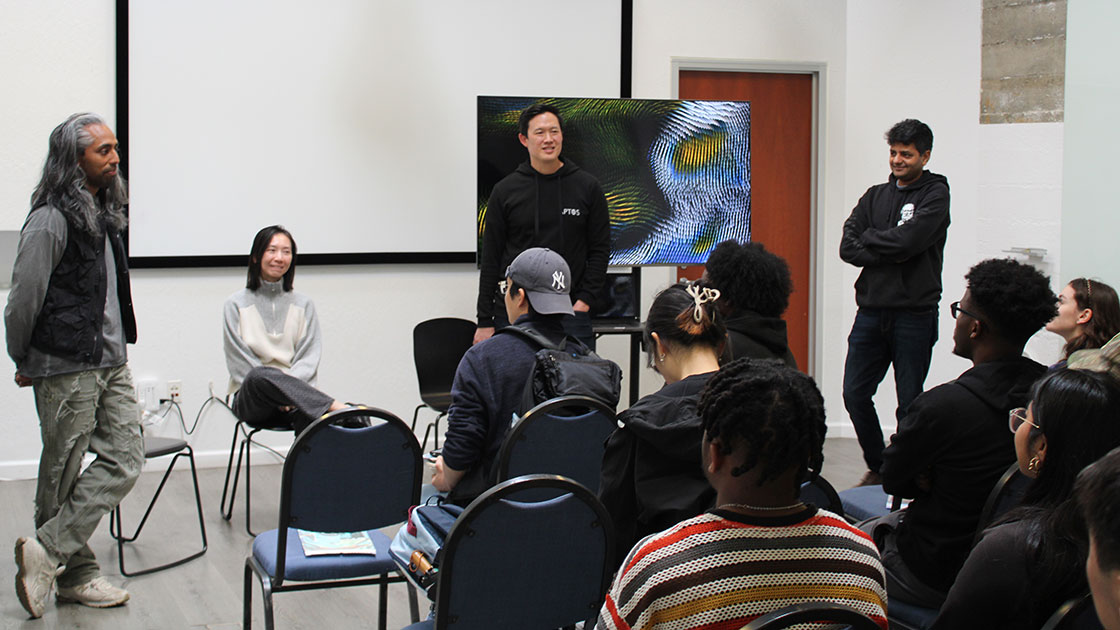Building Connections with San Francisco Bay Area Employers and Alumni
Twenty-three students traveled to the San Francisco Bay Area over spring break
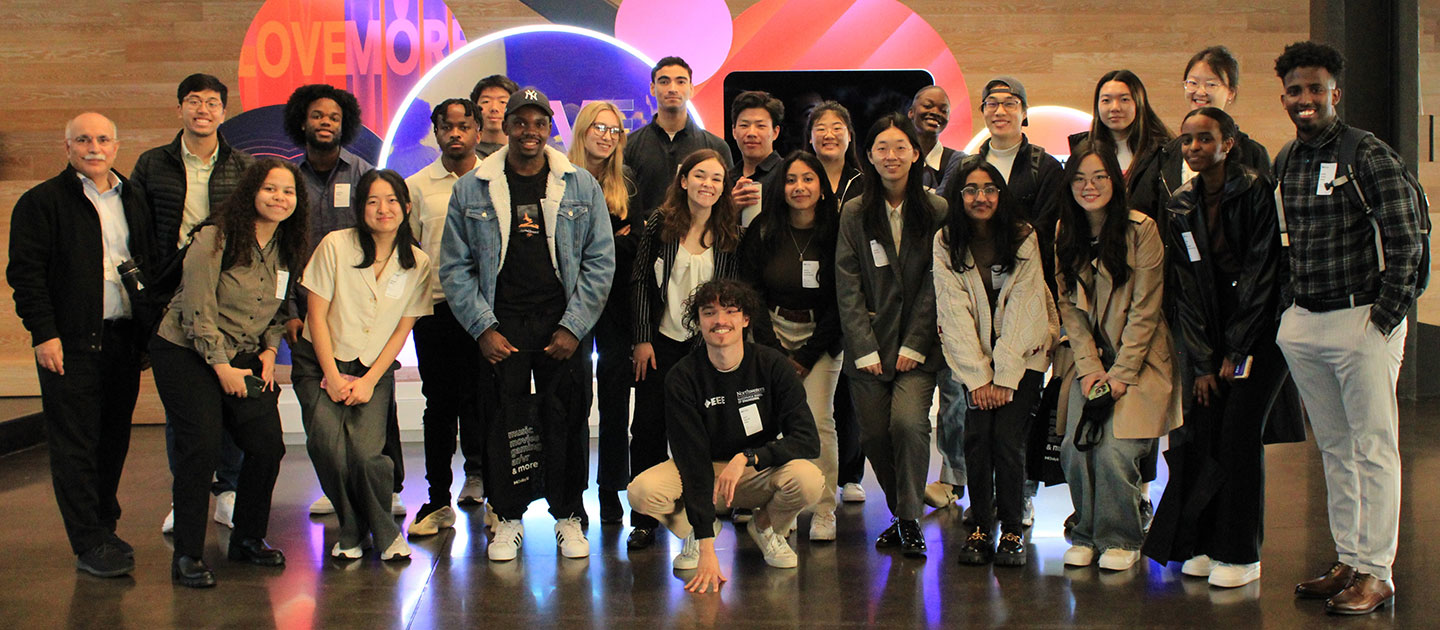
The San Francisco Bay Area region in Northern California is a global epicenter for technological innovation — a hub for dynamic startups and tech giants including Adobe, Dolby Laboratories, Google, and Meta.
Over spring break, 23 Northwestern students traveled to the Bay Area to build connections with employers and alumni as part of a Northwestern Computer Science career development pilot initiative.
Northwestern Engineering’s Samir Khuller accompanied the cohort — which included McCormick School of Engineering students pursuing undergraduate and master’s degrees in computer science as well as students in industrial engineering and management sciences and mechanical engineering. The group also included computer science students in Northwestern’s Weinberg College of Arts and Sciences, who are also studying subjects including biological sciences, cognitive science, economics, and political science.
“Visiting the Bay Area can be a transformative experience for students that exposes them to innovative technology, fosters networking opportunities, and inspires them to pursue careers in tech and innovation. It is a valuable investment in their education and future career prospects,” said Khuller, the Peter and Adrienne Barris Chair of Computer Science at Northwestern Engineering. “We also wanted to showcase our very own Northwestern talent to top companies in Silicon Valley. The students got a chance to see Northwestern’s San Francisco center as well as Stanford University and the Google campus.”
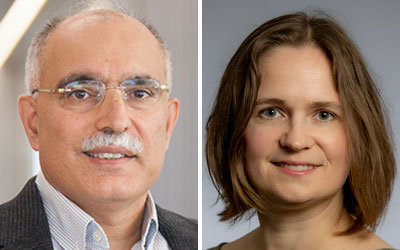
“Encouraging alumni who are working in Silicon Valley to actively engage with current students can provide valuable connections and insights,” Kurdia said. “In addition, startups founded by Northwestern alumni can benefit by interacting with our students as well. A big thank you to all the companies and alumni who welcomed our group.”
Connecting with companies
The cohort visited companies of various sizes in different industries — from startups to corporations with city-sized campuses.
Computer engineering alum Avery Ching (’02, PhD ’07), the cofounder and chief technology officer of Aptos Labs, shared his experience transitioning from roles in industry to launching a startup. Aptos is a Web3 technologies studio based in Palo Alto that is building on the Aptos Layer-1 blockchain. Aptos CEO Mo Shaikh, production engineer Sherry Xiao and engineering lead Pranav Raval also spoke with the cohort.
Dolby Laboratories’ Shriram Revankar, advanced technology group senior vice president, and programs and partnerships manager Roshni Kasad welcomed the students, who were transported to Dolby headquarters via the Waymo One autonomous vehicle ride-hailing service. Following a discussion with the company’s university recruiting team, the students enjoyed a demonstration of Dolby’s immersive cinema technology.
At Adobe Research in San Jose, research lab director Tong Sun organized a reception and tour of Founders Tower and Almaden Tower. Designed with vibrant artistic and immersive experiences, the colorful workspaces emphasize interaction, collaboration, and team building and include team neighborhoods, focus rooms, collaboration zones, drop-in desks, adventure rooms, and community gathering grounds. In addition, the students met with Adobe Research team members, including research scientist Victor Bursztyn (PhD ’22), who specialized in natural language processing at Northwestern Engineering and was advised by professor of computer science Larry Birnbaum.
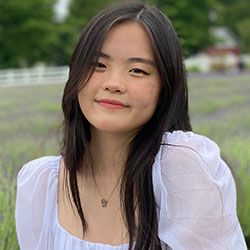
Yvette Kamperin and Maria Manalang, of Liftoff Mobile, a growth acceleration platform for the mobile industry based in Redwood City, organized a tech talk and Q&A session with the cohort, followed by a lunch with the company. Computer science alum Basil Huang (BS CS), a software engineer at Liftoff, also met with the students.
Additional company connections included:
- Computer science and computer engineering alum John Mark Nickels (’05) welcomed the cohort to Uber in San Francisco. Nickels, a senior director of product management, discussed the transition from college to career and recommended that students explore several different companies and roles. He generously provided Waymo codes to the students for transportation during the trip.
- Khuller reconnected with a college classmate — chief product officer Smita Hashim — at Zoom Video Communications in San Jose, California. Hashim and experience center operations lead Farzad Samavarchian spoke with the students.
- Students learned how Teleo’s end-to-end technology transforms heavy construction and mining equipment into supervised autonomous machines from Vinay Shet, the company’s cofounder and CEO. Shet discussed Teleo’s innovative approach to integrating AI with human labor, which aims to improve safety, address labor shortages, and bridge the generational gap in the industry.
- Jake Juracka, the technology manager at The Garage at Northwestern, arranged for the spring break cohort to meet with Tom Yoritaka (’92), chief operating officer of the 3D AI Avatar technology company Copresence.
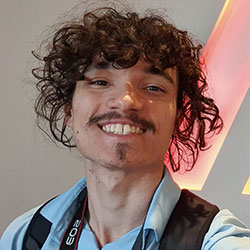
Building a network
Students met with alumni and friends of Northwestern CS at Northwestern’s San Francisco academic center, home to a variety of Northwestern schools and programs, including the Farley Center for Entrepreneurship and Innovation Bay Area Quarter, the Segal Design Institute Bay Area Immersion Program, and The Garage San Francisco.
During a panel and networking event, students received early-career advice and insights from entrepreneur Rob Goldman (’92); technologist, educator, and instructional designer Kristin Goldman (’92, MS ’98); Farley Center Advisory Board member Sharmila Shahani-Mulligan (’88, MBA ’94), an entrepreneur, strategic adviser, and tech investor; and Allie Janoch, cofounder and CEO of environmental management software company Mapistry.
After earning an undergraduate degree in computer science from the University of Maryland, Janoch moved to California in 2010 to pursue a PhD at the University of California, Berkeley. She talked with the spring break cohort about her experience and decision-making process around leaving the graduate program early with a master’s degree to pursue her entrepreneurial goals.
Rob Goldman’s guidance resonated strongly with the cohort. He described the learning process of “riding waves,” or adaptability in different environments. He also stressed the importance of self-directed learning and a forward-looking mindset for navigating challenges and opportunities.
“Discovering the diverse roles that Northwestern alumni hold in tech companies across the Bay Area filled me with pride and excitement,” said Maciel Dias, an international student from Caucaia, Brazil, who identifies as first generation, lower-income. “It's reassuring to know that I am part of a community filled with leaders and innovators.”
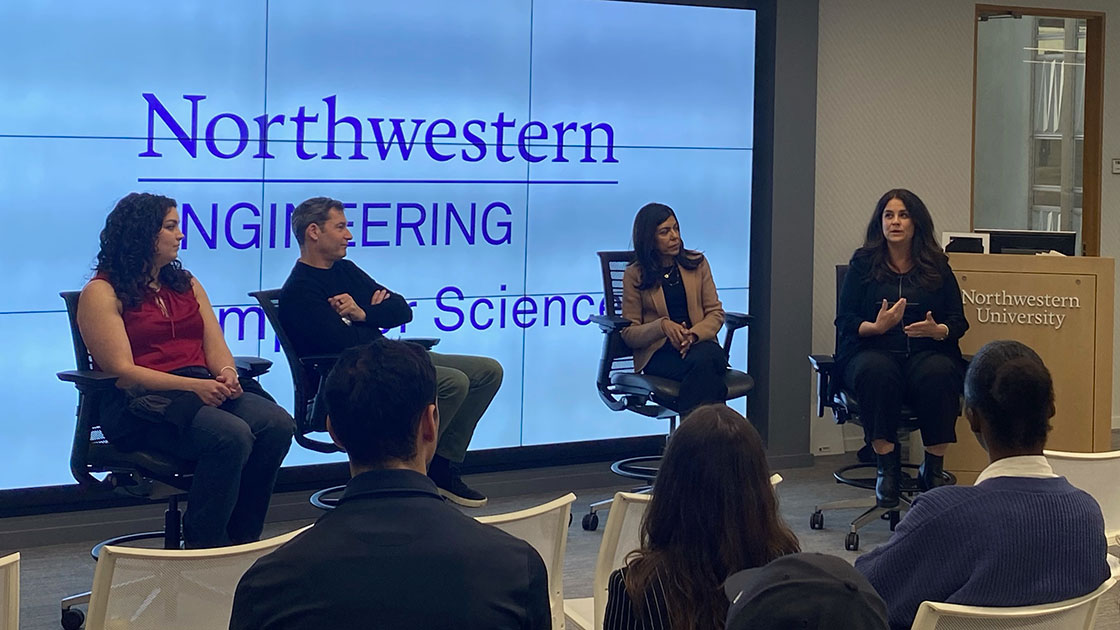
Student reflections
Bay Area native Alex Feng, a fourth-year student earning a combined BA/MS degree in computer science, appreciated the unique opportunity to get an insider’s experience of the companies he grew up nearby.
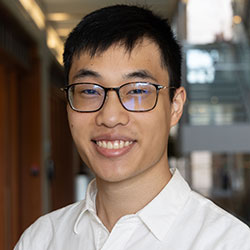
Feng, who is interested in pursuing an industry career in machine learning, found it enlightening to learn how different companies are using artificial intelligence and machine learning. The trip also helped inform him about the types of advanced graduate classes that would be advantageous and relevant for their industry applications.
“Contextualizing what research in industry looks like and getting a sense of the different product spaces within tech was really helpful to get a feel for what type of companies I might be most interested in working for,” Feng said.
Ana de Souza, a third-year student in industrial engineering and management sciences who is pursuing minors in data science and engineering and psychology, has served as a peer mentor for CS introductory classes for nearly two years.
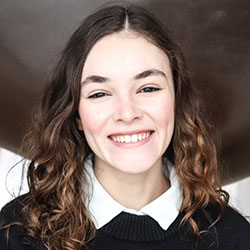
“Being able to see myself in those places was very important to me. My parents could never have imagined going to Silicon Valley and visiting such great companies,” de Souza said. “It was amazing to picture myself working in every single one of those companies and the University providing this opportunity for us really meant a lot.”
Wei Sun, a third-year computer science student at Northwestern Engineering double majoring in psychology at Weinberg, was eager to both gain insights from professionals in leading industries and to build stronger relationships with the cohort.
“In this unforgettable journey to the SF/Bay Area, I was privileged to engage with two extraordinary groups. The first, a cadre of industry leaders, imparted lessons on success, resilience, and the deep values underpinning their achievements, alongside invaluable advice and perspectives that reshaped my thinking,” Sun said. “The second, my peers from Northwestern, introduced thoughtful and insightful questions that prompted discussions that deepened my understanding in ways I hadn't anticipated. Together, these interactions wove a rich tapestry of learning, invoking a profound impact on both my career path and perspectives.”
For students like Maciel Dias and Sun, the trip sparked a stronger interest in entrepreneurship and working with startups.
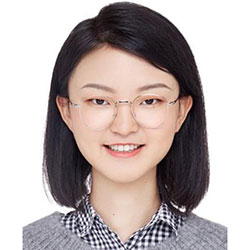
“My revised plan is not just about gaining experience; it's about a continuous journey of learning, addressing gaps in my knowledge as an entrepreneur, and maintaining a principled stance on using AI as a beneficial tool in people's lives, not as a detrimental force,” Sun said. “This approach is a direct result of the insights gained during the trip, guiding me toward a future where technology serves humanity, embodying the values of innovation and responsibility.”
Acknowledgements
Kurdia acknowledged the advice and support of Northwestern Engineering’s director of development Patrick Hankey and Kristin Rodeno, a senior director of development in Northwestern’s west coast regional office.
Northwestern CS student affairs coordinator Bella Barrios managed the trip’s complex logistics, including ordering catering mindful of several dietary restriction and allergy profiles, and making flight and transportation arrangements.
The Goldman family provided financial support for the trip and also aided Kurdia in making connections with companies the students visited.


